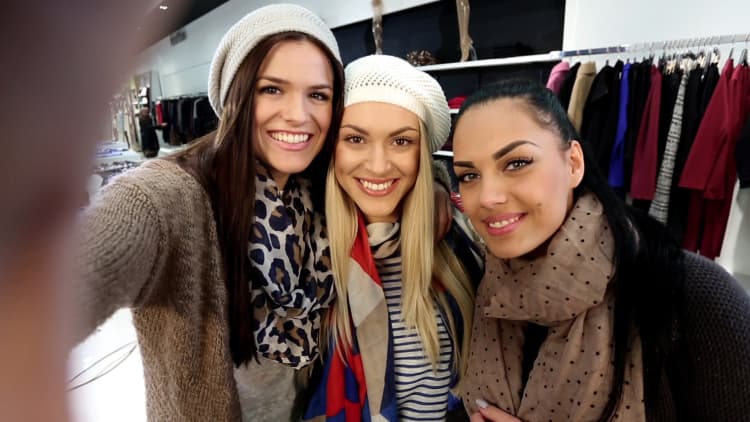The holidays may still seem far off, but it's never too early to start saving for the gifts, travel and goodies that typically accompany the season. Rather than dipping into your emergency fund, though, financial experts advise creating what's known as a "sinking fund" to underwrite the costs.
A sinking fund is a savings account used to cover planned, one-time expenses, like new tires, a future trip or holiday miscellany. It's different than an emergency fund, which, ideally, isn't used for expected expenses. If you've saved for something specific in the past, then you've already had a sinking fund.
By anticipating far-off costs, you're able to save a little bit of money at a time — such as $20 a month — rather than pay out a lump sum all at once, or have to save more each month in a tighter time frame.
Here's how to do it.
Set a specific goal
If you don't know what you're saving for, then you're "just shooting from the hip," Douglas Boneparth, a certified financial planner and president of Bone Fide Wealth, told CNBC. Determine what your short- and long-term goals are and how much you need to save for each. Then prioritize the most important goal.
"I think this is often the most important step," Boneparth said. "Most people do not have the financial resources to fund all of their goals at once."
With the holidays a few months off, starting to save for gifts now might make the most sense. Or you might want to prioritize spending money for an upcoming trip. Whatever the goal, consider how long you have to save for it and how much you'll want to put away from each paycheck.
Anticipate annual expenses
For many people, Christmas gifts and upcoming vacations are obvious options for sinking funds.
But you can also set up separate accounts for smaller yearly expenses, such as your Amazon Prime subscription, annual credit card fees, family birthday gifts and more. Take a look through your bank statements to find those semi-routine purchases.
Planning ahead of time for these expected expenses, if you are able, will relieve stress and ensure you're not relying on credit cards or other types of debt to fund them.
Open a new savings account
Keeping your savings at a different bank from your checking account means you will be less tempted to transfer funds, and if you do, it will take a few days to be able to access your money, all of which could deter impulse spending.
Ideally, this separate account should be in the form of a high-yield savings account at an online bank, such as Ally or Goldman Sachs, experts say. These accounts can offer 25 times as much interest as savings accounts at traditional banks, where the national average interest rate is just 0.09%. Robo-advisors like Wealthfront and Betterment also offer high-yield accounts.

If you need more help saving, you could also opt for an app like Digit or Albert, which analyze your spending and save for you in FDIC-insured savings accounts.
Another tip: Name your accounts to help inspire you.
"Many banks will allow you to change the name of your savings account from a generic Bank Account 39341029 to something with actual meaning," Erin Lowry, author of "Broke Millennial: Stop Scraping by and Get Your Financial Life Together," told CNBC.
Set up auto-transfers
Take procrastination out of the equation by automating your savings. Apps like Digit or Albert will automatically save for you, but if you're using a high-yield account, set up a weekly or monthly auto-transfer.
It doesn't have to be much: Even $10 a week is better than nothing, and will add up over time.
"Automating the process allows you to make the decision once and prioritize," Rich Ramassini, a certified financial planner and director of strategy and sales performance at PNC Investments, told CNBC. "It is harder to stick with the habit if you do it manually and force yourself to make the decision each month. A disciplined system typically yields better results than discipline alone."
Don't miss: 70% of Americans make this simple banking mistake—and it could cost them $50 billion
Like this story? Subscribe to CNBC Make It on YouTube!



